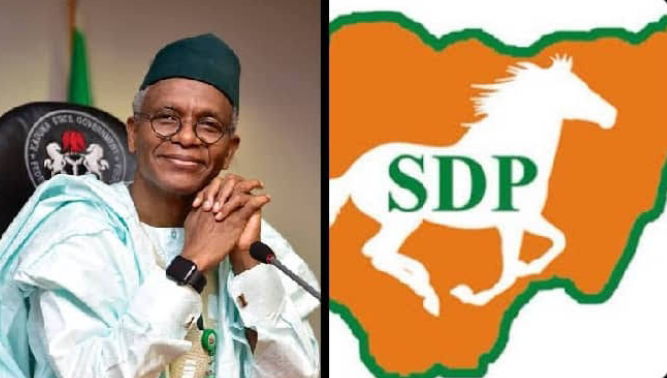Buhari, the sequel: Tougher on security but health doubts persist
Published on 2017 August 25, Friday Back to articlesAs President Muhammadu Buhari arrived at Abuja airport on 19 August, his colleagues and assorted followers were asked pressing questions about the political implications of his return:
> Will Buhari do anything to resolve the stasis in the executive?
> Can he stamp his authority again on the increasingly independent-minded generals and intelligence chiefs?
> Will he allow the economic reformers in the government to push ahead with liberalising exchange controls and investment regulations?
> How will he manage the disturbing rise in ethnic and religious separatism?
> And, more prosaically, is he really fit enough to be a full-time president?
Buhari is visibly stronger than before his departure for medical treatment in London back in May, but there is no sign of him taking on a full working presidential role. That would involve an eight-hour day in the presidential office, immersing himself with all the key domestic and foreign policy issues.
Buhari failed to show up at the presidential office on 21 August following a short broadcast to the nation at 07:00 that morning, and it was left to press secretary Femi Adesina to explain to journalists that Buhari would be working from his residence while the presidential wing undergoes renovation. A claim that officials had found rats in the presidential offices prompted merriment in the press corps.
In practical terms this means the executive is back to the uneasy co-existence of Buhari’s office on one hand, led by his uncle Mamman Daura and chief of staff Abba Kyari, and on the other Vice President Yemi Osinbajo with the backing of technocrats such as Finance Minister Kemi Adeosun, Power, Works, and Housing Minister Babatunde Fashola, Trade and Investment Minister Okeshukwu Enelemah, Budget and National Planning Minister Udo Udoma, and Mines and Steel Development Minister Kayode Fayemi.
In numerical terms it should be no contest. But in terms of power politics, Kyari and Daura win as the gatekeepers.
During Buhari’s absences, Kyari has fought effectively against what he terms ‘over-reach’ by Osinbajo. He’s pushed back on appointments, policy changes, investigations, and contract awards on the basis that they would have to be approved by Buhari himself. This is despite the formal transfer of executive powers to Osinbajo with the approval of the National Assembly.
By seeking National Assembly approval for the transfer, Buhari’s office had hoped to avoid the sort of controversy that developed under the presidency of visibly ailing Umaru Musa Yar’Adua in 2009–10 The reluctance of Yar’Adua’s aides to admit the seriousness of his illness and to transfer any substantive power to then vice president Goodluck Jonathan triggered a constitutional crisis. Joint action by the Senate and House of Representatives forced their hand with what was termed ‘the doctrine of necessity.’
Backed by a committee of Nigerian elders including General Yakubu Danjuma, Jonathan gingerly took over presidential powers. Some of the more harmful elements were forced out and Jonathan brought in some of his own team. By the time of Yar’Adua’s death in May 2010, a coalition of technocrats and some of Jonathan’s followers from the Niger Delta were waiting to take over.
Not another Mandela
That scenario doesn’t look likely in the Buhari– Osinbajo relationship. The great unknowable is the seriousness of Buhari’s condition. It is evidently debilitating but his aides insist he is stronger today than he has been since he took over the presidency.
They compare Buhari’s role over the next two years with Nelson Mandela’s role from 1994 to 1999: elder statesman, moral beacon, and ambassador extraordinaire, while his officials get to grips with the tough policy work and implementation.
However far-fetched that comparison seems in a global setting, there are some parallels in national terms. Buhari retains an enormous support base in the North West and North East geopolitical zones. Many in the region see him – due to his image as a tough nationalist and scourge of corruption – as the North’s best hope. No other contender for the presidential nomination of the ruling All Progressives Congress (APC) could match the Buhari vote bank. That reality has prompted talk of Buhari running again in 2019, if he can maintain the current slow pace of work.
In reality, the comparison between Buhari and Mandela breaks down because of essential differences in political context and structure. Mandela essentially devolved policy-making powers, security, and diplomatic policy to Deputy President Thabo Mbeki. Added to that, Mbeki could work with an effective civil service – albeit one going through a wide-ranging transition – to push through key reforms. And crucially, Mandela was one of the most influential political figures in the world.
Even Buhari’s closest friends don’t claim that for their man. And neither do they think that Osinbajo should be given the power and authority that Mbeki assumed under Mandela. Of course, if Buhari’s health deteriorates sharply again, the current balancing arrangements could fall apart.



